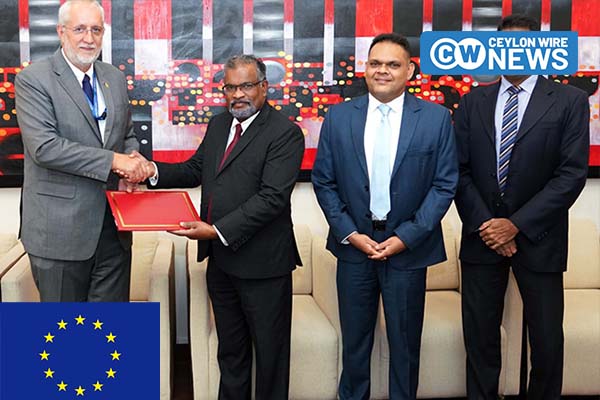The Sri Lankan government and the European Union (EU) have formalized a financing agreement, signing a deal worth EUR 15 million to promote a circular economy and sustainable consumption and production in the food sector. The grant from the EU is designed to address key objectives, including enhancing food availability for vulnerable populations through more efficient distribution channels, minimizing food waste, and transforming food waste into valuable farming inputs such as organic fertilizer and animal feed.
Ambassador Moreno Carmen, representing the European Union to Sri Lanka and the Maldives, highlighted the significance of adopting a circular economy model in Sri Lanka, presenting an opportunity for the development of new technologies, business models, and fostering entrepreneurship and innovation. The aim is to address challenges related to resource scarcity and effective protection of environmental resources.
“Promoting circular economy practices is vital for the country to mitigate the risk of crises in the future and to establish food security and sustainability. The European Union is pleased to support Sri Lanka in improving the food surplus/waste recovery system and assisting food producers,” Carmen stated.
The EU grant, titled ‘Promoting a Circular Economy in the Food Sector,’ amounts to EUR 15 million. With the agreement now signed, the EU will move forward with contracting implementing partners for the delivery of the support.
This initiative aligns with global sustainability goals, including the Paris Agreement, the 2030 Agenda for Sustainable Development, and specifically, SDG 12 on responsible consumption and production. It also contributes to Sri Lanka’s commitments outlined in the 2021 updated National Determined Contributions (NDCs) and the implementation of the National Policy on Sustainable Consumption and Production.
The project focuses on supporting Sri Lanka’s economic resilience during the ongoing economic crisis by improving food security and nutrition, while simultaneously reducing the impact of human activities on health, the environment, biodiversity, and greenhouse gas emissions related to transportation and disposal. The specific objectives include reducing losses and increasing the recovery, processing, and supply of edible and safe food surplus and/or waste management for the benefit of vulnerable consumers and food producers, as well as enhancing the effectiveness of sustainable production, distribution, and consumption models related to food waste/loss and single-use plastic food packaging.









